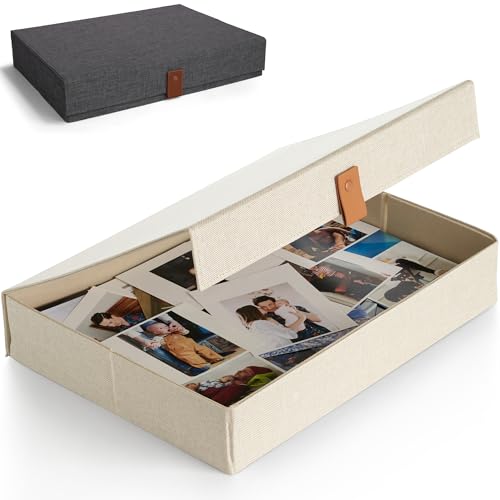6 signs you're 'paying rent' for your stuff – and what to do about it
Home organizers reveal the things taking up prime real estate, and costing you time, energy or money

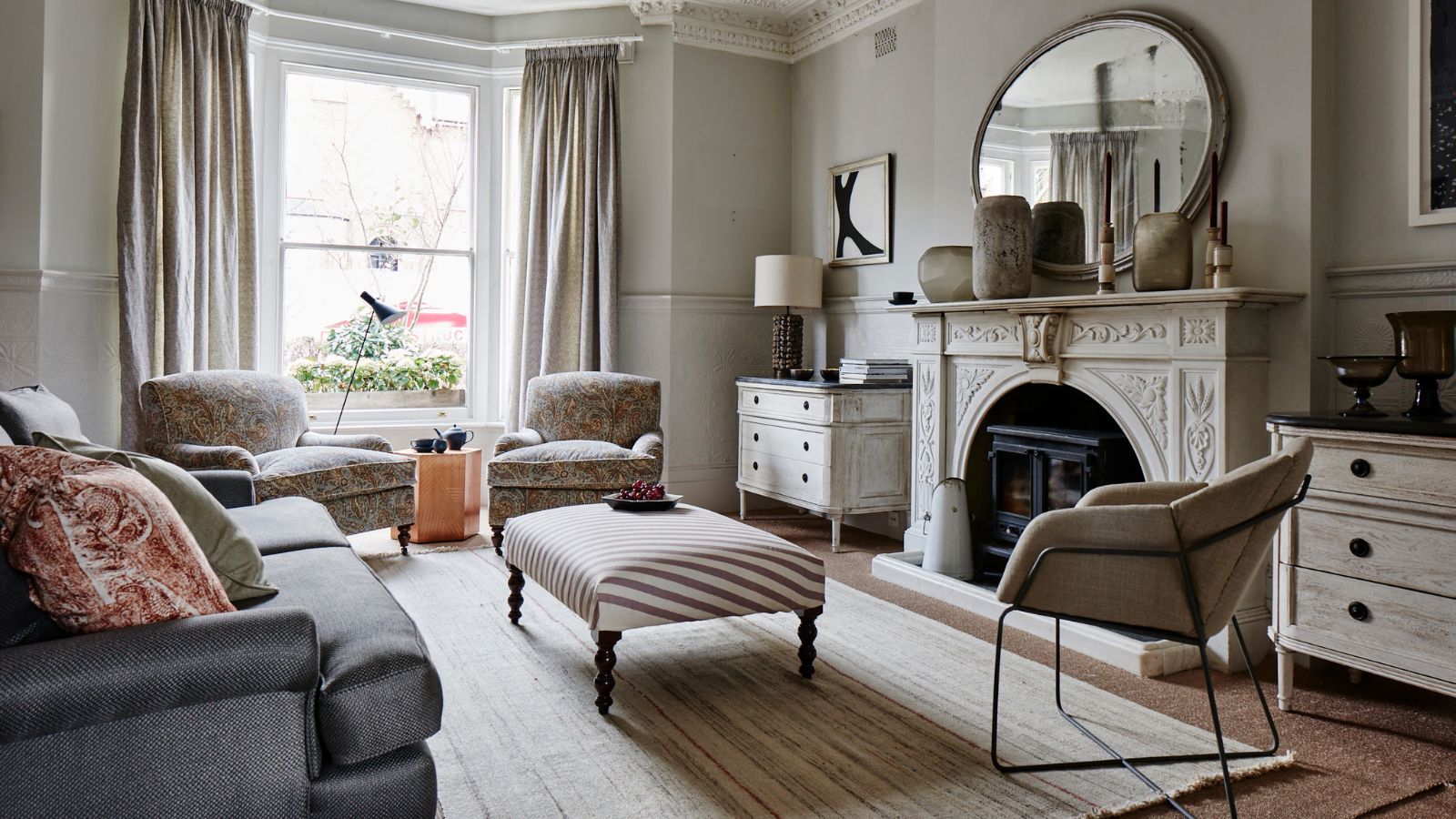
Design expertise in your inbox – from inspiring decorating ideas and beautiful celebrity homes to practical gardening advice and shopping round-ups.
You are now subscribed
Your newsletter sign-up was successful
Want to add more newsletters?
It’s easy to think of clutter as simply annoying, such as that verflowing garage or chaotic shed that makes weekend projects harder than they should be.
But professional organizers say this clutter is doing much more than being an eyesore: in many cases, you’re quite literally paying rent for your stuff. That is, you’re spending more to store, house, or protect your belongings than the items are worth – both in terms of money and space. It might also be 'costing' time and energy.
Here are six tell-tale signs you're 'paying rent' for your stuff, and professional decluttering tips for what to do about it.
1. Your storage space is costing you real money

If you're renting storage space elsewhere, you could save money by keeping what you need at home.
If you’re renting a storage unit – even a small one – do a quick calculation. If you’ve spent over $500 in a year to store furniture, boxes or sentimental items, ask yourself: are those items worth that much today? If not, you’re quite literally paying rent for clutter.
Professional organizer Diane Greenhalgh, owner of Tiny to the Max, says, 'If you rent a storage unit you're not alone: self-storage facilities are a growing industry to the tune of $44 billion.
'But storage units are just full of delayed decisions, and things we don't need. Most things would cost less to replace than the money you spend to keep them. There are some exceptions, like if you're doing a renovation, or staging your home for sale, but for the most part, either use it in your home or let it go.'
These 103-Quart Weathertight Clear Storage Bins from The Container Store not only have huge capacity, but come with wheels for easy transportation between storage units and your home.
Design expertise in your inbox – from inspiring decorating ideas and beautiful celebrity homes to practical gardening advice and shopping round-ups.
You can learn how to maximise storage in every room by using these six hidden storage ideas to maximise space.
2. You can't park in your garage (or even reach the back)
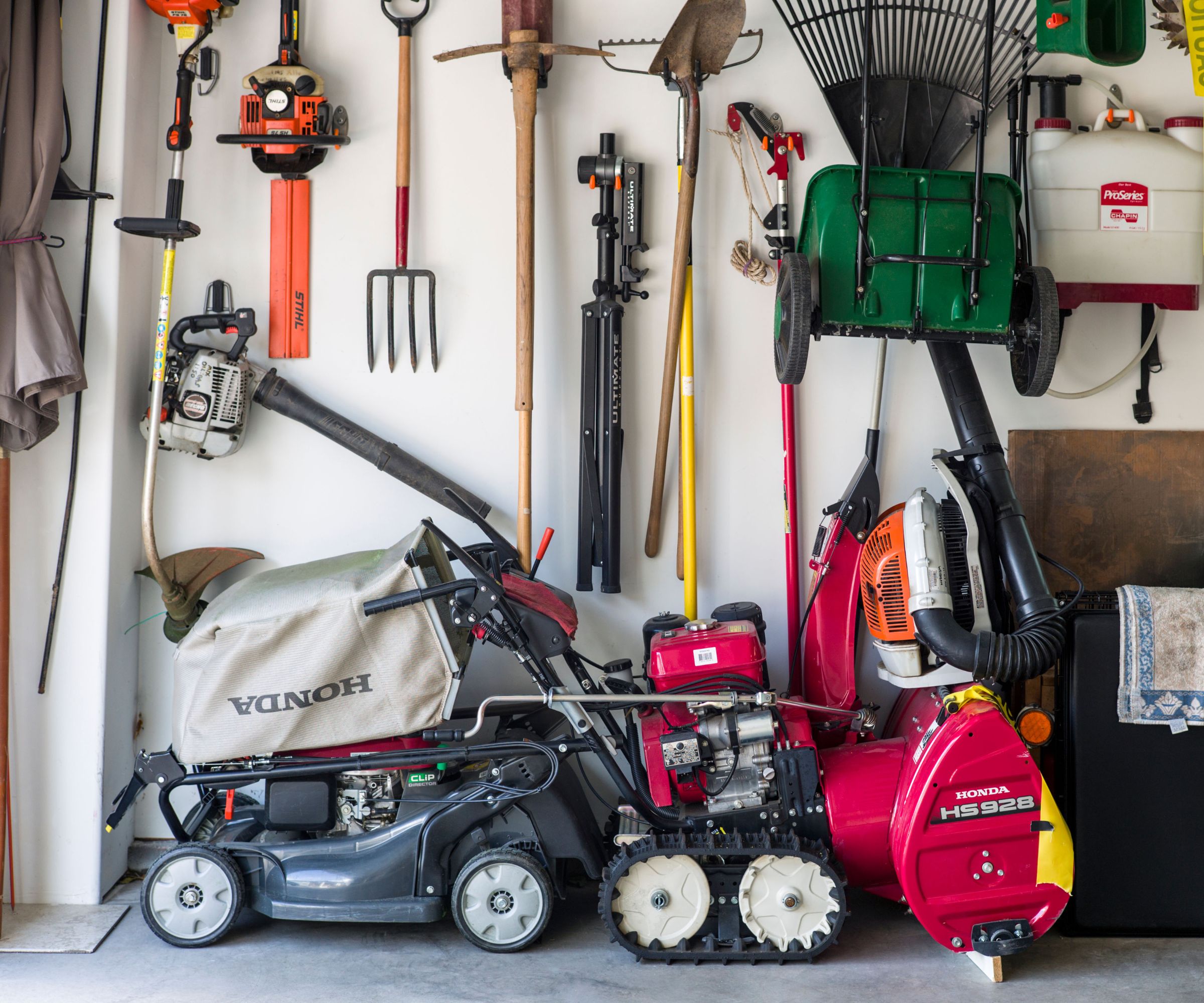
If there's no longer enough space in your garage for your car, it's probably time for a declutter.
Garages are among the most expensive storage areas in your home per square foot. If yours is filled wall-to-wall with unused gear, broken tools, and mystery boxes from five years ago, it’s time to ask: is all this really earning its keep?
Karina Toner, operations manager at Spekless Cleaning, says, 'Garages are meant to store your car – or at the very least, serve as a functional space. But more often, they become graveyards of good intentions.
'Between half-finished DIY projects, leftover renovation supplies, and “I’ll deal with it later” boxes, the garage turns into a catch-all space where even walking through becomes an obstacle course. That square footage is valuable, yet it’s being swallowed up by stuff that’s out of sight and out of mind.
'Instead, take a weekend to reclaim your garage. Sort what’s actually in progress vs. what’s been sitting forever. Be brutally honest about what you’ll realistically use or finish. Focus on clearing out anything you haven't used in two years.'
The SPOT decluttering method is one of the best for sorting a specific space, such as your garage. This case of six Weathertight 30-Quart Clear Storage Bins from The Container Store will allow you to tidy your garage, keeping sensible amounts of items, rather than endless boxes of stuff you'll never use.
Audra George, owner of Oklahoma-based Pretty Neat, adds, 'I advise putting up shelves in the garage and sorting items that you'll keep and use into bins, while getting rid of the rest. Adding vertical space gives you extra storage and allows you to use the garage for its intended purpose – to park your car.
'However – and this is key – you still have to deal with the original problem. Get rid of stuff you're holding onto for no good reason, keeping only what you need or will actually use.'
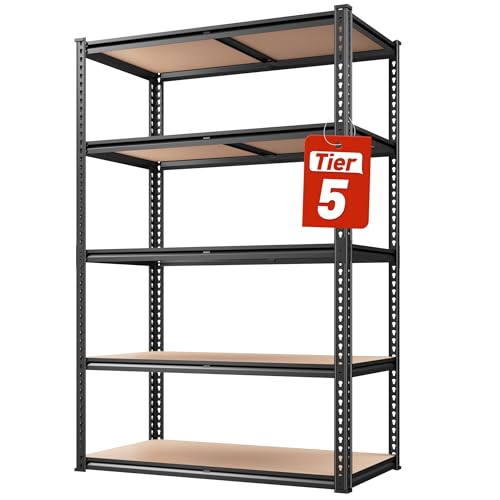
With a high-quality metal frame and a total bearing capacity of 2020 lbs (up to 404 lbs per shelf), this five-tier shelving unit is a stable option for garage storage. Even better: the storage rack has adjustable connectors so you can alter the height of each layer according to your container sizes.
3. You're buying duplicates – because you can't find the original
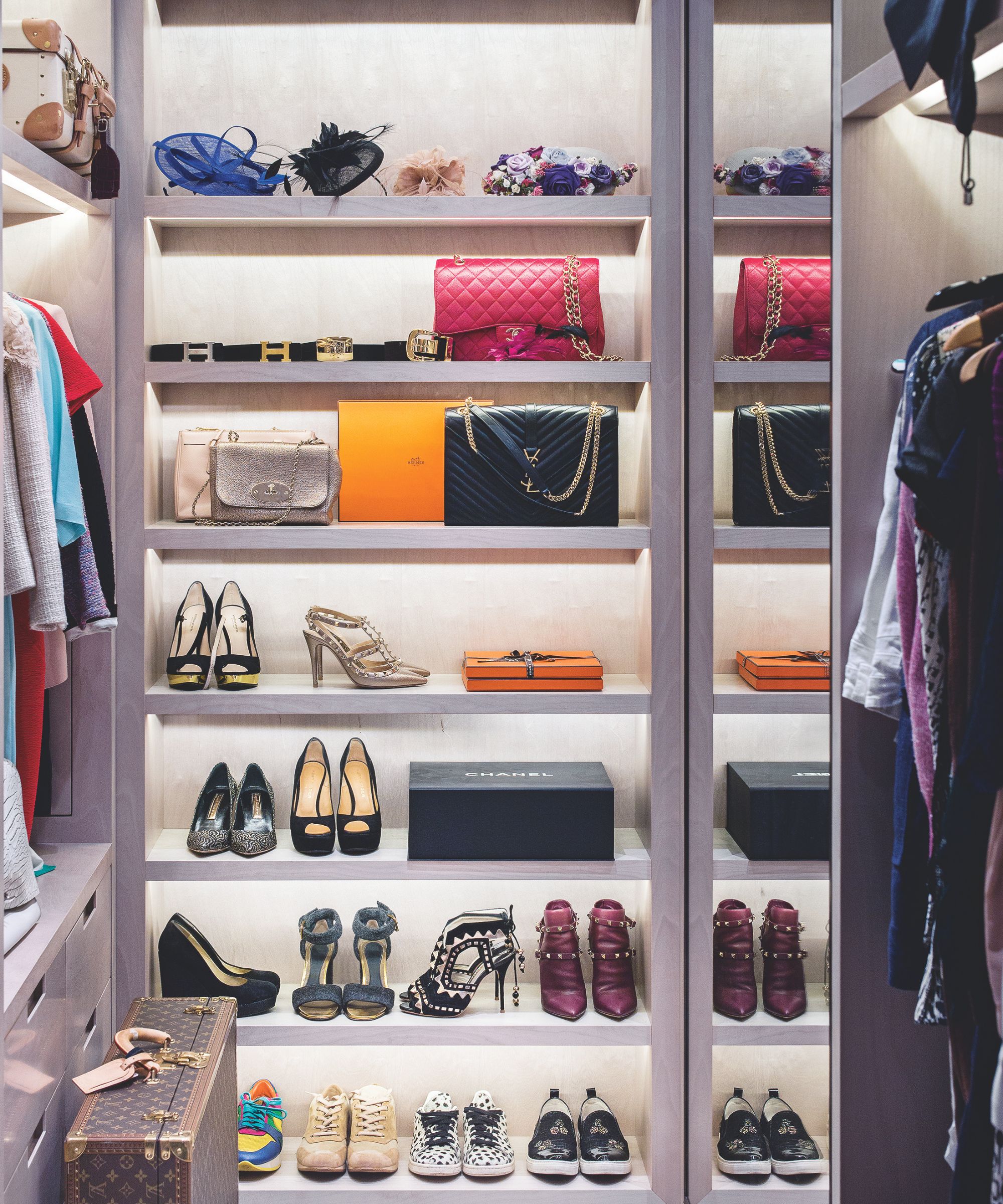
Streamlining and organizing your possessions will stop you buying duplicates unnecessarily.
Whether it’s hedge clippers or hose attachments, if you’re often repurchasing tools or household goods because you can’t locate the original, your clutter is actively costing you money.
Greenhalgh says, 'One of the costs of not decluttering is people often forget they have things, or don't feel like searching for them, so they just buy a new one.
'It's a really common problem: Americans spend $2.7 billion replacing lost items each year. Instead, declutter and get organized by creating a home for everything, including labels so you know where things are.'
Create simple, labelled zones for seasonal tools in your shed or utility space – and use clear bins so nothing disappears into the depths, such as these HOMZ Small Clear Plastic Storage Bins with Latching Lids, available from Amazon.
To stop buying duplicates, you need to first consider why it keeps happening. The Caterpillar Decluttering Method is one of the best for examining the habits that need changing for a tidier lifestyle.
Greenhalgh adds, 'Remember that to stop yourself from running into this problem again, always check your home before you go shopping. Whether it's the pantry, the freezer, or the back of your clothes closet, always look before you shop.'
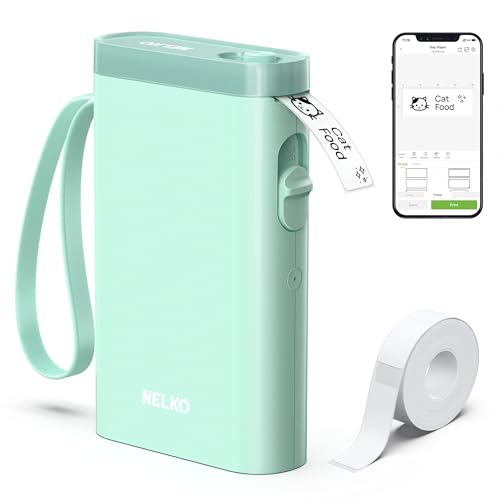
Home organization pro Diane Greenhalgh recommends this wireless label maker, which connects to an app for easy label creation. It's also light and fits neatly into your pocket, allowing printing anytime, anywhere. It comes with a built-in, rechargeable battery, and is compatible with both IOS & Android phones via bluetooth connection.
4. You're keeping piles of boxes 'just in case'
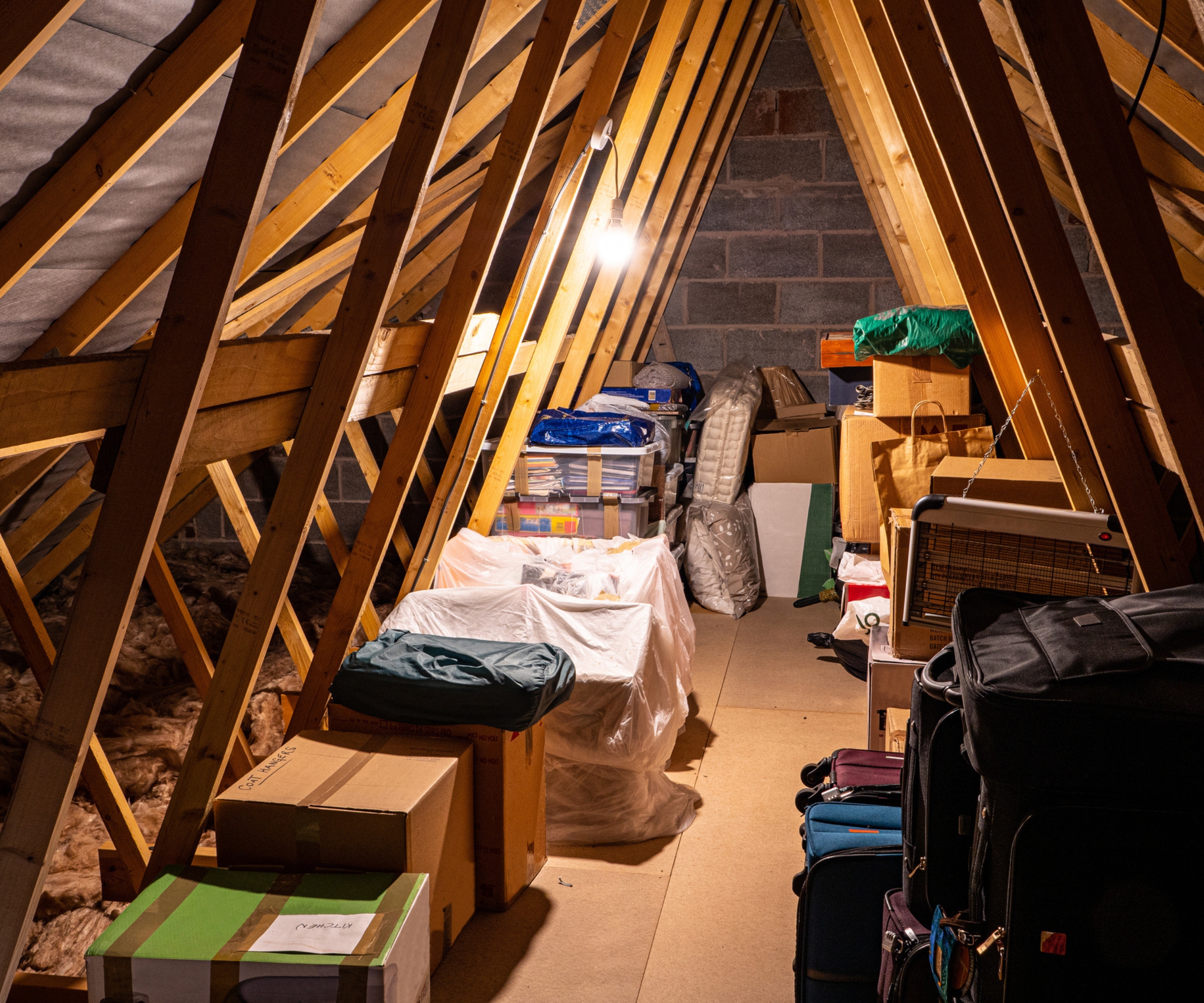
Fancy tech boxes are among the things professional organizers recommend letting go.
From shoe boxes to packaging for those smart home must-haves, many of us hang on to fancy cardboard 'just in case'. But in most households, these end up taking up valuable attic, garage, or cupboard space for years without ever being reused.
Toner says, 'Let’s be honest: those premium tech boxes, shipping materials, and random packaging aren’t really pulling their weight. Your home has a finite square footage, and every box you keep “just in case” is taking up room that could be holding extra linens, seasonal clothing, your vacuum, or something else you actually use. While you don’t see a bill each month, you're losing the value of functional, accessible storage.
'Instead, keep just a handful of high-quality, sturdy boxes for legitimate moving or storage needs. If you’re saving original packaging for resale, designate a single bin for that and take care not to let it overflow. Otherwise, snap a photo of the box with the serial number and toss the cardboard.'
Toner recommends these IRIS USA 30 Quart WEATHERPRO Plastic Storage Boxes from Amazon. She adds, 'They're clear, stackable, and useful for items you do need to store.'
5. Your flat surfaces fill up

If your flat surfaces begin to gather clutter, it's a sign you need to let things go.
If every surface in your home – worktops, tables, even the washer – seems to be holding piles of stuff, chances are your storage is overflowing. This often signals that hidden cupboards and drawers are packed with items you no longer use.
Francesca Verri, owner of Verri Organized, says, 'Too many homeless items on flat surfaces means you have a system or storage space breakdown – and that breakdown usually stems from having too much stuff.
'When the cabinets and drawers are stuffed and systemless, things inevitably spill out onto a flat space. The best rule of thumb to keep clutter at bay is that the 'home' for things is never on a flat surface.
'It's a really common problem, especially in the kitchen, causing a negative domino effect: crowded counters make cooking unappealing, which negatively affects goals of eating healthier, or gathering for meals.'
Verri recommends purging drawers of old or unused contents, and collating tools neatly in trays, such as these Everything Organizer Drawer Organizer Trays, available at The Container Store. They come in many sizes to help categorize kitchenware and create a limit for the space so you don’t keep more than you need. For cabinets, Verri recommends storing all perishable food in clear, BPA free, stackable containers (see below).
Professional organizer Amélie Saint-Jacques adds, 'Don't forget that all this extra stuff on surfaces isn't just affecting the look of your home – every object needs to be managed. You have to clean it, clean around or under it, pick it up and put it away. It costs you valuable time and energy, in addition to your mental bandwidth!'
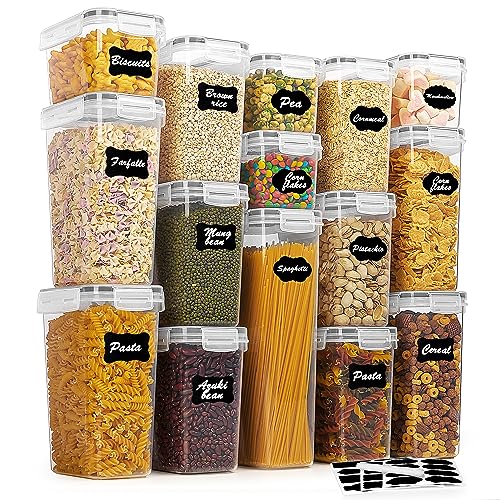
Home organization pro Francesca Verri recommends this kitchen and pantry set, which includes 15 airtight containers in four different sizes, as well as 24 reusable labels. She says, 'Storing this way makes food shopping a breeze. When you create good systems, it's easier to keep your surfaces clear and stop paying rent for unnecessary or homeless items.'
6. You've got 'clutter coffins' of emotionally-loaded items
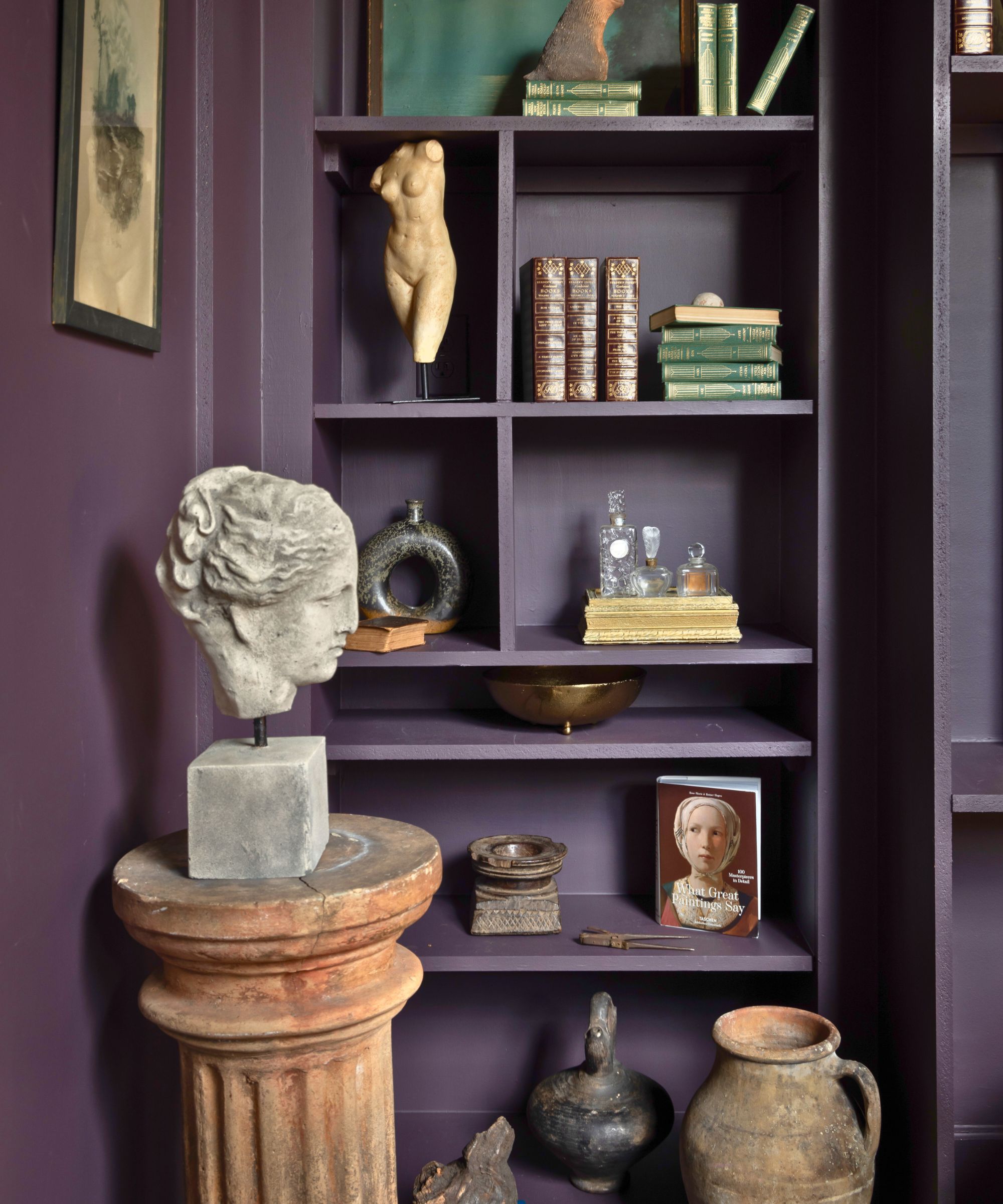
Keepsakes are among the items you should consider letting go, according to professional organizers.
'Clutter coffins' is the term coined by The Minimalists to describe boxes full of sentimental belongings that live untouched in storage – often indefinitely.
From kids’ artwork to inherited décor you don’t like, ask yourself: Do I love this, or am I just afraid to let it go? If it’s the latter, try taking photos or saving one small keepsake, then pass the rest on. 'Lessting' your nostalgic items might just help you appreciate the ones that matter most.
Ben Soreff, professional organizer at House to Home Organizing, adds, 'Keepsakes are fine to keep, but only if they're still meaningful. Does the actual item make you think and feel good when you see it? Also, consider quantity: does one baby blanket serve the same emotional purpose as four?'
Saint-Jacques recommends setting a limit on how much you can own – for example, what fits inside one of these GRANNY SAYS Fabric Storage Boxes from Amazon. She adds, 'Keep in mind that you cannot keep everything! It's okay to let go of some things that were once important as you change.'
For more help getting rid of sentimental items, try the Japanese decluttering method of 'Mottainai'.
Meet the experts

Diane is a professional home organizer specializing in decluttering, downsizing, and small spaces. A member of the National Association of Productivity and Organizing Professionals (NAPO), she helps overwhelmed folks transform their home into one that brings them joy.

With extensive contributions in Homes & Gardens, Real Homes, The Spruce, and many more, professional cleaner Karina has extensive knowledge of both commercial and residential cleaning.

Audra is owner and professional organizer at 'Pretty Neat: An Organization Solution in Oklahoma City, Oklahoma' – a professional organizing company that serves the unorganized, the overwhelmed, and the busy family. They believe organization can truly impact every area of people’s lives.

Francesca has more than 20 years of experience using minimalist organizational habits and theories to empower clients to make lifestyle changes that produce real and lasting results. She is the owner and founder of Verri Organized.

Amélie is a professional organizer who works one-on-one with clients to help them regain control of their home. She declutters and organizes, helping put systems in place to manage day-to-day living going forward. Her goal is to help clients create an organized space for a more peaceful life.

With more than 15 years' experience in the industry, Ben created House to Home Organizing to help homeowners get their spaces looking beautiful and functioning too. He regularly provides expert comment for Homes & Gardens, as well as other industry-leading magazines.
So there you have it – six signs you're 'paying rent' for your stuff, plus what to do about it. Clutter isn't just a matter of mess – it’s often a hidden drain on your finances, your energy, and your space.
This summer, learn the things you should be storing in drawers, according to professional organizers, and take advantage of the extra daylight to evaluate what you're really storing – and whether it's worth it.

With more than a decade of experience writing news, lifestyle, consumer, and human interest articles for a wide range of national and international publications, Andy is a highly-qualified journalist writing features for the national press. From front porch to backyard, attic to basement, Andy has written about every area of the home. He specialises in bringing together the best industry expertise to answer all of your most pressing home and garden questions about seasonal and everyday cleaning, decluttering, organizing and DIY.
